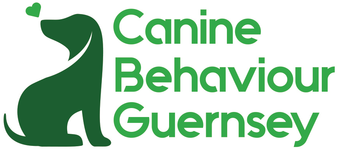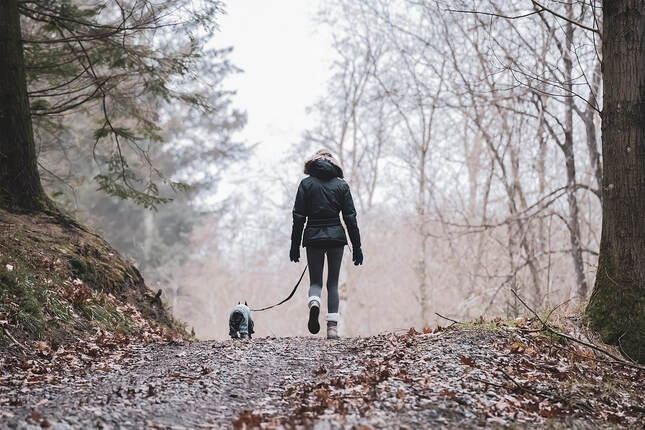|
The RESPECT Campaign, launched by Canine Behaviour Guernsey and supported by the GSPCA, is about encouraging dog owner etiquette in an attempt to reduce the amount of out of control and anti-social dog incidents in the island. It aims to help dogs, their owners and people feel safer and understood. The below gives some examples of how it can be applied.
Recognise. Guernsey is a small island; it is heavily dog populated and we are all sharing the same space. We need to respect everyone around us. Many issues are caused by ignorance - people simply not realising what are good canine social skills or not recognising each other’s needs. The law states that owners must have control of their dogs at all times. If your dog cannot be recalled, please don’t let them off the lead. Evaluate. Assess each and every situation. Who and what is around? Is it safe to continue? When walking your dog, check the environment and your surroundings. Should you walk your puppy along a busy path with lots of children on their scooters where they could easily spook, or can you go a different way to prevent a problem? Is it safe to let them off the lead? Is there a horse on the beach, sheep in a nearby field or a family having a picnic? If so, could you go elsewhere to prevent a problem? Please never let your off-lead dog approach an on-lead dog as they may be on-lead for a reason. This can also be applied to the wider public, could you give the dog you see out and about a bit of space? If not, perhaps you could slow down to pass. Zooming past in close proximity can cause any animal to spook. Never run straight up to or shove your hand in a dog’s face. Always ask to say ‘hello’ and if the owner says ‘no’, please respect their decision. Sympathise. Think about others and be conscious of their circumstances and feelings. Can you help them out? A lot of dog owners are actually doing their very best. You may have never had a reactive dog before or one that has a habit of stealing other dogs’ balls, but it doesn’t mean that the other owner isn’t aware of the problem and isn’t trying to work on it. Be sympathetic, if someone is calling their dog off your dog’s ball, help them by stopping throwing it until they have left the vicinity. If you can see a dog isn’t coping well, or a dog is in training, give them space and go a different way, or pull in to let them pass. If a dog is following you and their recall has failed, just stop still and wait for the owner to get control of the dog. A ‘blow you Jack, I’m alright’ mentality, is only going to cause more upset and issues so please think of others. Politeness. Be polite to others. Kindness goes a long way. If a dog is pestering you or your dog, ask the owner politely to put them back on a lead. Stay calm, if you get stressed and angry that will feed onto the dog. If someone asks you to put your dog back on the lead or give them space, respect their request and politely do so. Your dog may be friendly and well-trained but theirs might not be. A person or their child might be scared of dogs. Be courteous, people will appreciate it. Even an incredibly well-trained dog can have a recall fail, if your dog’s recall does fail, apologise to those around you and revisit training. And please pick up your dog’s mess. Education. We can all help by learning more about how dogs behave, their body language and what it means. With so many dogs in society, it has never been more imperative to learn canine body language. A waggy tail just means adrenalin but that can also be caused by anxiety so that dog has the potential to bite if its signals to go away are ignored. A properly funded education programme in schools would go a long way. Owners have a responsibility to educate themselves on the species before bringing a dog into their life - is it the right decision for them? Is the breed or rescue dog they want the right dog for their home-life and lifestyle? Are they prepared to put the time, money and hard work in to train the dog? Canines will be canines. Dogs are not humans and have species-specific needs. Recognise this and think about what is natural for dogs. Expectations of dogs have become ridiculously high. Dogs are a victim of their own success and people expect every dog to behave like the therapy dog down the road or like the hero dog on the TV. A dog is still an animal with canine instincts. They have species-specific needs and have a brain and emotions of their own. Even the most robust of animals can have a bad day, including the therapy dog down the road! So don’t take them for granted. Owners need to think that what is natural for a human socially, may not be natural for a dog. Artificial social situations can be incredibly stressful for many dogs, some struggle to cope out of fear and others struggle to cope out of excitement, both can lead to bad habits, poor manners and aggressive behaviour. Meet, greet and play is actually only 20% of teaching social skills, 80% is actually helping the dog to learn that stimuli are neutral - neither threatening or over-exciting. An ethical and qualified trainer can help you understand this more. Train. Training any dog is imperative to keep them and others safe. A dog is a HUGE responsibility and you have to be prepared to invest the time and money into training. If you decide to get a dog and you have done your homework, the next step is to enlist in an ethical and qualified trainer. You need to train your dog essential life skills to ensure that you keep them and everyone around you safe. Attend puppy classes and do 1-2-1 sessions - all will be of benefit. For more information about RESPECT or if you would like help training your dog please email [email protected].
0 Comments
Leave a Reply. |
AuthorAnna Jane Brehaut Archives
February 2024
Categories© Anna Jane Brehaut 2019
|



 RSS Feed
RSS Feed